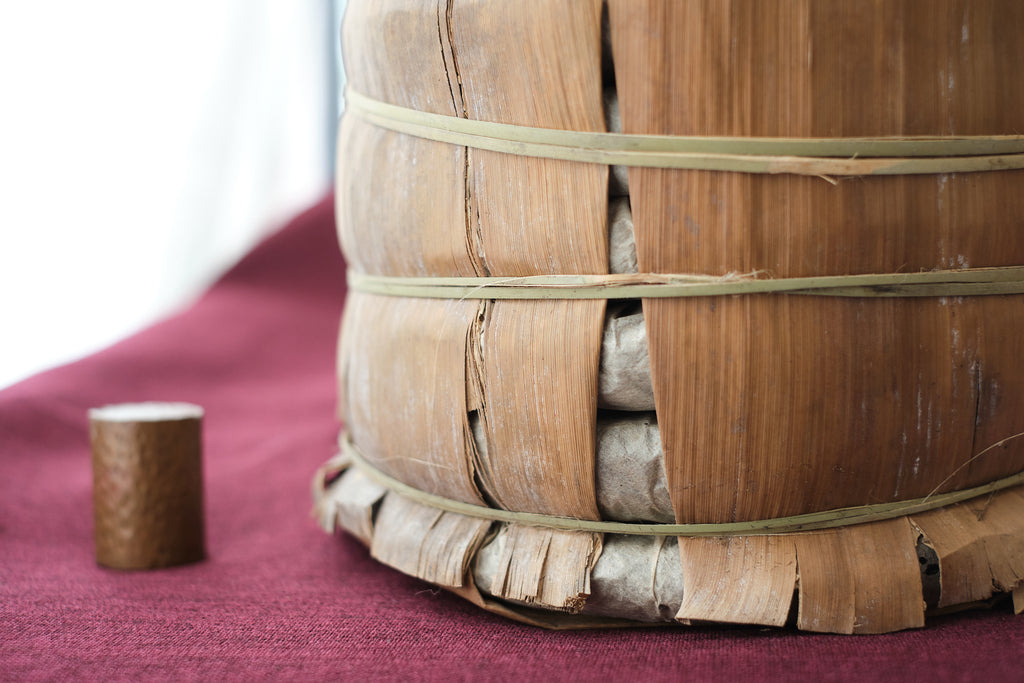Free worldwide shipping for orders over $30
$356 USD
Ancient Tea Gardens of Ban Pen Village in Hekai area, Menghai
Aged in Pu'er City, dry storage, controlled environment
Warming Cha Qi that will make you sweat
This cake was carefully aged in Pu'er City, with controlled humidity (not above 70%). The tea was stored in large quantity in the tea shop of my friend, Luo Yong Sheng, who's father has collected teas since the early 2000's.
This tea brings us back to the origins of the modern puerh tea culture. Before that time, people thought plantation tea was the new standard, making beautiful leaves and achieving a much higher yield than the quaint ancient tea gardens, considered a relic of the past.
2005 was the turning point. More and more buyers started visiting the tea mountains in search of 'gushu' leaves. In this early stage of development, the locals had a prime access to good material. The towns were small, the roads were in poor shape, you needed local connections to do the trade. Luo Yong Sheng's father surely had connections, and a car that could brave the challenging dirt roads. He collected leaves from Banpen village, a back-then remote village, south of Menghai, 3km away from Lao Banzhang, another unremarkable village lost in the vastness of Yunnan's countryside.



This cake is about as old as it gets for ancient garden material. 17 years of aging in Pu'er City.
The rinse gives out of hint of wet storage, probably early in the tea's journey. It was then stored for at least eight years in dry conditions, with a humidity of less than 70%.
This remnant of wet storage actually gives the tea a certain charm. It has deep woody notes that might take you on the coast, exploring the shipwreck of an old pirate. This is the image I got when I first tried this tea.
The mouthfeel opens up and reveals a brilliant sweetness. This tea will make you comfortable, its Cha Qi sends waves of heat rippling through your body. You can feel this used to be an aggressive tea, but it has gain a lot of wisdom over the years. The mouthfeel is thick. You can extract bitterness if you push the tea, it will tickle the tongue and vanish into sweetness quickly. You'll be able to enjoy it for over a dozen brews, it suits very well late stage brewing. If you're sensitive to Cha Qi, you'll probably feel a bit high at the end of the session.
